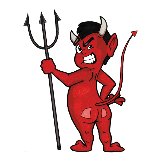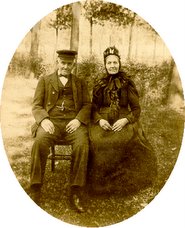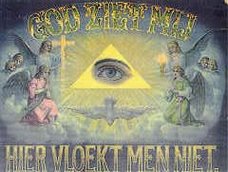Jacoba van Leefdael, lady of Lieferinge, lived from approx. 1680 to 1723. She married Pierre Colins, a man of minor gentry. Jacoba and Pierre are among my ancestors (see previous posts). The Colins can be traced back in the male line to the 14 th century with Pierre belonging to one of the minor branches. The van Leefdael's go back some more centuries.
And if I can believe the data on genealogyonline.nl, one or more lines of Jacoba's ancestry can be traced back to the time of Christ, and there are an impressive number of well known historical families in it.
Given the presentation of the website and the numerous branches which can be explored it is impossible to give an overview in a short blogpost. It shall even be a serious task to introduce all the data in my family tree, which I do not intend to do as long as I do not have a better understanding of the reliability of the data.
Some exemples : the Colins inherited Lieferinge from Jacoba. She was the fifth generation of van Leefdaels to hold the title of Lieferinge. The Leefdaels inherited Lieferinge from the illustrious van Gavere family, which goes back in direct male line to the tenth century.
The van Leefdael's inherited Lieferinge through the marriage in the sixteenth century of Philips van Leefdael (+ 1568) to Anna van Gavere (+ 1567). Philips' mother Joanna van Aerschot Schoonhoven had illustrious ancestors with lines tapering out in the first and second century, if all that is written on the website is to be believed. But there are (many) other lines in the tree which go back that far.
I haven't explored all the branches of the tree of which Jacoba van Leefdael is the "result" but I already noted a lot of well known people among my ancestors in that tree : Clovis (+/- 466 - 511) ; Charles Martel (688 - 741) ; the almost unavoidable Charlemagne (742 - 814) ; Henri I Capet, king of France ; Thierry of Alsace (Diederik van den Elzas), and other counts of Flanders ; some dukes of Brabant ; lots of French, Dutch, and Scandinavian (norman) nobility ; English and Scottish princesses, Russian and German "top" families a.s.o.
Even if the data in the website are copied correctly, we all know that lots of the family trees made up in the middle ages were just that : made up.
But this small exercise shows that no one man is better than the next. Apparently some of my forebears had 16 and maybe even 32 quarters of nobility. I have none, and I do not need any. Nobility is not in the number of quarters : it is in the man or in the woman, with or without quarters. But the quarter bearers are remembered ; ordinary people are forgotten.
I often enough have written what I think about nobility. Let the "blue blooded" members of our present day society not forget that they are not better than us : as a matter of speaking we all have the same blood running through our veins, in smaller or larger quantities. Wooly eyed optimists say they were granted all their privileges because they protected ordinary folk. Others say they only made it to the top because, in earlier times when society was structured, they were more ruthless thieves and murderers than your average person. But all, well meaning and others, made it on the back of the common people !
One final remark : in almost all other branches of my ancestry, "foreigners" are exceptions. In this one foreigners abound. Of course this class of people moved around a lot more than poor people whose only care was to get the next meal on the table, and who in the first centuries of the middle ages had no personal freedom of movement whatsoever.







2 comments:
This might be an even less reliable source than Geneanet. Who knows ?
It might be even worse !
Post a Comment